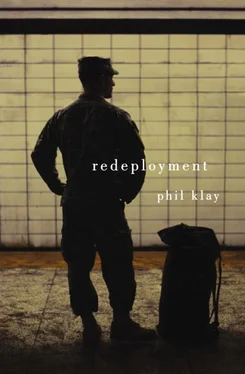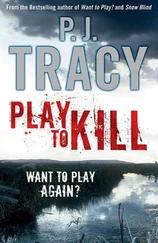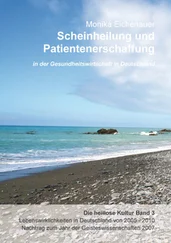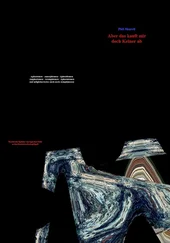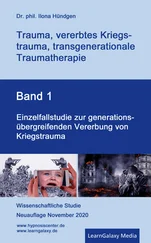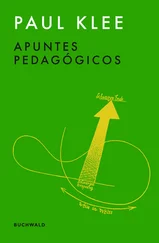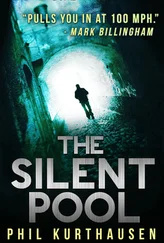In boot camp, the DIs teach you Medal of Honor stories. Most recipients were KIA. Their families didn’t get a homecoming, they got a CACO knocking on their door. They got SGLI. They got a trip to Dover to see Marines lift the remains out of a C-130. They got a closed casket, because IEDs and SAF don’t leave pretty corpses. The DIs tell you these stories over and over, and even a POG like me knows what they mean.
So I tell my family, “I’m staying in—the G.I. Bill can wait.” And I tell my OIC, “Sir, I want to go to OEF. OEF’s where the fight is now.” And I tell my girlfriend, “Okay, leave me.” And I tell PFC, “I wish it’d been me,” even though I don’t mean it.
I’m going to OEF. As a 3400. As a POG, but a POG with experience. I’ll distribute CERP again. I’ll roll with 03s again. And maybe I’ll get IED’d again. But this time, out on the MSRs, I will be terrified.
I will remember the sounds PFC made. I will remember that I was his NCO, so he was my responsibility. And I will remember PFC himself as though I loved him. So I won’t really remember PFC at all—not why I gave him low PRO/CONs, not why I told him he’d never make E4.
Instead I will remember that our HMMWV had 5 PX. That the SITREP was 2 KIA, 3 WIA. That KIA means they gave everything. That WIA means I didn’t.
MONEY AS A WEAPONS SYSTEM
Success was a matter of perspective.In Iraq it had to be. There was no Omaha Beach, no Vicksburg Campaign, not even an Alamo to signal a clear defeat. The closest we’d come were those toppled Saddam statues, but that was years ago. I remember Condoleezza Rice declaring that civil administration and police functions had no part in a military campaign. “We don’t need to have the 82nd Airborne,” she said, “escorting kids to kindergarten.” In 2008, around the time I got there, the 82nd Airborne was building greenhouses near Tikrit. It was a brave new world, and as a Foreign Service Officer heading an embedded Provincial Reconstruction Team, I was right at the heart of it.
Touching down in Camp Taji, I was nervous, and not simply because of the danger. I wasn’t sure I belonged. I hadn’t believed in the war when it started, though I did believe in government service. I also knew my career would be helped by time in Iraq. The team I’d be leading had already been in country for a while. I was the only Foreign Service Officer of the group, but the sum total of my experience doing reconstruction consisted of a few college summers in Alabama working for Habitat for Humanity. I didn’t think it would help.
My colleagues had, theoretically, been hired for actual skills. As I exited the helicopter and headed toward a heavyset man holding a piece of paper with my name scrawled on it, I had the nagging impression that he would see through me to what I feared I was—a fraud and a war tourist.
It came as a surprise, then, when the man holding the sign—Bob, our ePRT’s one ex-military team member—cavalierly informed me that he’d signed up on a 3161 as a lark. He laughed about it, as though his lack of commitment were funny, while he escorted me to the Nissan pickup truck the ePRT used to get around base. “I never did anything like this before,” he said. “I never even figured I’d pass the physical. I’ve got a heart murmur. But there was no physical. There wasn’t even an interview. They called me up and told me I was hired, straight off the résumé.”
Bob, I quickly learned, had an existential view of the Iraq war. We were fighting in Iraq because we were fighting in Iraq. His was not to reason why, his was but to receive a $250,000 salary with three paid vacations and little expectation of tangible accomplishments.
“Cindy’s a true believer,” Bob said as he drove us to the ePRT office. “Fighting the fight of good versus evil. Democracy versus Islam. All that Sunday school shit. Careful with her.”
“What is she working on?”
“She’s our women’s initiative adviser,” said Bob. “She used to be on a local school board back in wherever the fuck she’s from. Kansas or Idaho or something. She handles our women’s business association, and she’s starting an agricultural project for widows.”
“She knows about farming?” I said hopefully.
“Nope, but I taught her how to Google.”
He parked the car outside a rickety hut made of plywood, which, he announced, was our office. Inside were two rooms, four desks, a long series of power strips, and a skinny little woman in her mid-fifties, peering intently at her computer screen.
“There’s two hundred fifty squirts in a gallon of milk!” she said.
Bob silently mouthed the word Google . Then he announced, “Cindy. Our fearless leader is here.”
“Oh my,” she said, springing out of her seat and walking over to shake my hand. “Sure glad to meet you!”
“I hear you’re working on an agricultural initiative,” I said.
“And a health clinic,” she said. “That’ll be tough, but it’s what the women tell me they need.”
I looked around the room.
“You can take either of the empty desks,” said Bob. “Steve won’t be using his.”
“Who’s Steve?” I said.
“The other contractor we were supposed to have,” said Cindy. She made a sad face. “He got pretty badly injured on his first day.”
“His first day?” I said. I looked over at the eerily empty desk in the back room. This was, I thought, a war zone. Death and disfigurement were possibilities for all of us.
“When he flew in to Taji,” Bob said, smirking, “he jumped out of the Black Hawk action-movie style, like he was gonna have to sprint through machine-gun fire to get to safety. Shattered his ankle with his very first step.”
• • •
After I’d settled in,Bob oriented me to the AO, taking me to the large map hanging in our office and breaking down the region.
“Here’s us,” he said, pointing at Camp Taji. “To the east you’ve got the Tigris. There’s a few old palaces on the western banks, and the other side is farming. Fruit groves. Oranges. Lemons. That weird fruit. What’s it called?”
“Pomegranate?” I said.
“No. I like pomegranate. That stuff—” He waved his hands and grimaced, then pointed back to the east side of the Tigris on the map. “This section’s all Sunni, so during Saddam, they did all right. It’s less slummy.”
“Less slummy?” I said.
“Until the highway. Route Dover”—Bob pointed to a road running north and south—“that’s the dividing line. West of Dover, Sunnis. East of Dover, slums, shit land, a little farming irrigated by the canal.” He pointed to a thin blue line running out of the Tigris, forming the southern border of the map. “Above that there’s not much good farming. There’s a water treatment plant here”—he pointed to a black spot on the map unconnected to any marked roads—“there’s an oil refinery out to the east, and here’s JSS Istalquaal.”
“JSS,” I said. “That means there’s Iraqi units there.”
“National Police,” he said. “And two companies from the BCT. Sunni police stay on the Sunni side, Shi’a stay on the Shi’a side, but the National Police cross over.”
“What are the National Police like?” I said.
“They’re Shi’a death squads,” he said, smirking.
“Oh.”
“South of the canal is Sadr City. No one goes there except U.S. SpecOps looking to kill somebody. Istalquaal is the closest JSS in our AO to it.”
I looked up at the map. “USAID claims agriculture should be employing thirty percent of the population,” I said.
“Right,” said Bob, “but the whole system broke down after we trashed the state-run industries.”
Читать дальше
